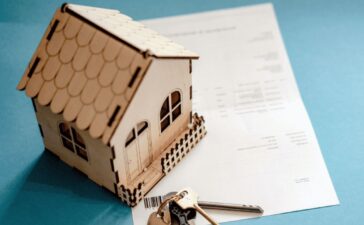Of all the parts of a home, the basement is the one that is most vulnerable to flooding. There are several reasons why basements flood, including malfunctioning equipment such as water heaters and washers, seepage, or storms. Basement flooding is not only expensive to correct when it happens, but it can also lead to additional problems down the line such as weakened basement walls, mold, and mildew. Fortunately, homeowners can prevent basement flooding by putting some effort into preventive measures. Below are some of these measures.
Check the Gutters and the Downspouts
Gutters should catch water and ensure it is directed away from your home, especially from around the foundation and basement. When the gutters have debris on them, water starts piling up close to the foundation and this can lead to basement flooding.
Gutters should work in conjunction with your downspouts. Even in cases where the gutters are clean, there is no guarantee that you have prevented flooding if the downspouts do not point away from the home. Downspouts should point away and be large enough to handle large volumes of water. They should also be angled in a way as to ensure they drain water at least three feet away from the walls. If you can run extensions to increase this distance, that would be even better.
Check The Foundation for Cracks
Even in homes where there is no history of flooding, it is easy to understand why cracks in your foundation can lead to a flooded basement. Water can seep through these cracks under small storm conditions. The cracks can also expand under heavy rain and lead to serious flooding.
A visual inspection of the foundation’s floor and walls can show you if there are any cracks. For the walls, there are a lot of DIY sealing, epoxy, and caulk solutions that you can consider. If the basement floor is cracked, or if the cracks on the walls are more than an inch wide, the basement might need more extensive work and it is better to call a contractor in this case.
Have a Sump Pump Installed and Maintained
Sump pumps are great flooding deterrents as they help remove any amount of water in the basement. Basement sump pumps are often equipped with valves that sense when the level of water in the basement is above a certain level. Once the water rises above this level, the pump turns on automatically and discharges water away from the house or the property through a discharge line.
To ensure that the sump pump you have installed can help prevent a flooded basement, you have to ensure that it is installed correctly, is free of any debris or foreign materials, can serve you even when you do not have grid power, and is operational under various conditions.
Cleaning the sump pump and clearing it of debris as well as keeping it connected is easy, but none of this matters if there is a storm that causes power loss. This is why it is a great idea that homeowners either have a standby generator or a battery backup sump pump to protect their homes when a storm causes power loss. Businesses that offer basement waterproofing services like Superior Basement Water Control & Remodeling can install various sump pump models, including battery backup sump pumps. Superior Basement Water Control & Remodeling also offers additional services including the installation of in-floor drain systems, water control systems, and mold removal services.
Install Window Well Covers
If you have below-grade basement windows, then you likely have window wells. Window wells are great for letting natural light into the basement, but they are also a flooding hazard. They collect water and when that water starts forming puddles, it can get into the basement. To prevent this, get some window well covers installed. Clear acrylic window well covers are a great option because they do not block natural light but still keep rain, insects, and debris away.
Check The Internal Plumbing
While many of us think of storms and rain when we think of the causes of basement flooding, it is also important to understand that flooding can have internal causes too. These can include damaged water heating systems, faulty sump pumps, damaged washers, and broken pipes. To protect your home from these internal threats, it is always a good idea to do regular inspections yourself or to call a plumber or general contractor to do them for you. If caught early, these issues can be rectified and save you a lot of money, time, and headache trying to deal with a flooded basement.
Conclusion
Basement flooding is a serious concern, especially if you live in an area prone to heavy rainfall or storms. Fortunately, there are a few things you can do to protect your home and property from water damage. All of these preventive measures should be put in place in the drier seasons so you and your home are prepared for any eventualities in the wetter months.





